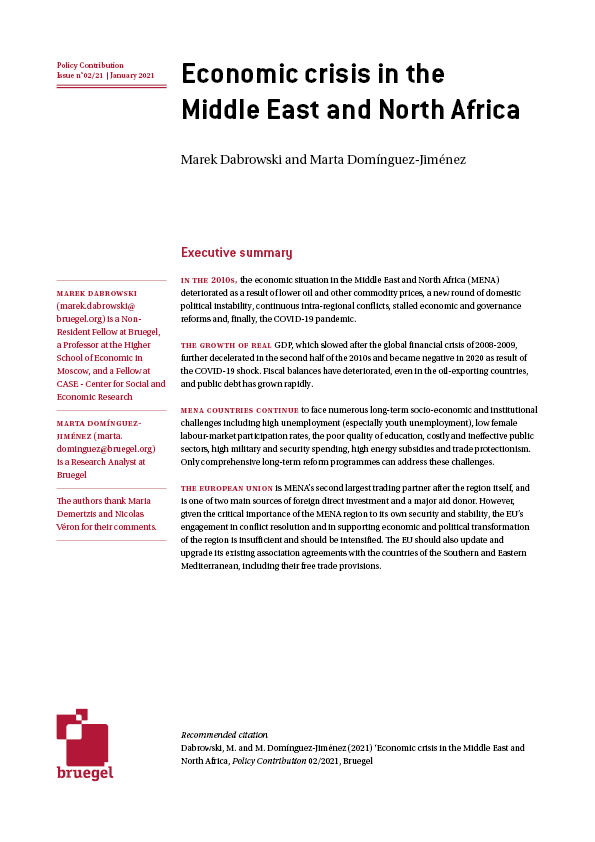Scholars

Marek Dabrowski
Non-Resident Fellow
Expertise: Neighborhood Policy, trade policy, political economy of transition, monetary and fiscal policies, growth and poverty, currency crises CV: Download CV
Dr. Marek Dabrowski is a Non-Resident Scholar at Bruegel, Professor at the Higher School of Economics in Moscow, co-founder and Fellow at CASE - Center for Social and Economic Research in Warsaw and Member of the Scientific Council of the E.T. Gaidar Institute for Economic Policy in Moscow.
He was Chairman of the CASE Supervisory Council and its President of Management Board (1991-2011), Chairman of the Supervisory Board of CASE Ukraine in Kyiv (1999-2009 and 2013-2015), and Fellow under the 2014-2015 Fellowship Initiative of the European Commission – Directorate General for Economic and Financial Affairs. He is a former First Deputy Minister of Finance of Poland (1989-1990), Member of Parliament (1991-1993) and Member of the Monetary Policy Council of the National Bank of Poland (1998-2004).
Since the end of 1980s he has been involved in policy advising and policy research in Azerbaijan, Belarus, Bosnia and Herzegovina, Bulgaria, Egypt, Georgia, Iraq, Kazakhstan, Kyrgyzstan, Macedonia, Moldova, Mongolia, Montenegro, Poland, Romania, Russia, Saudi Arabia, Serbia, Syria, Turkmenistan, Ukraine, Uzbekistan and Yemen, and in a number of international research projects related to monetary and fiscal policies, growth and poverty, currency crises, international financial architecture, perspectives of European integration, European Neighborhood Policy, trade policy, and political economy of transition.
He has also worked as a consultant in a number of EU, World Bank, IMF, UNDP, OECD and USAID projects. Marek is the author of several academic and policy papers, and editor of several book publications.



